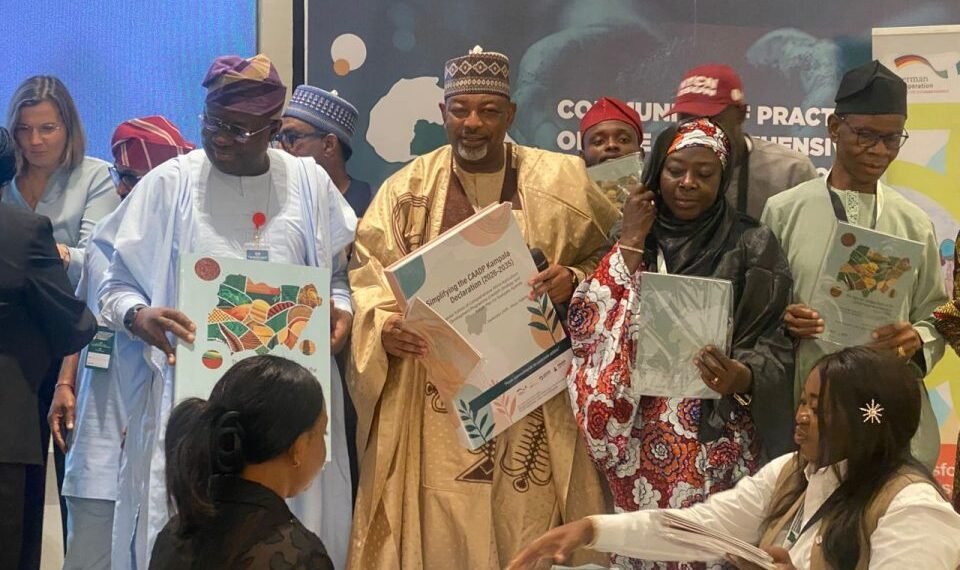The Minister of Agriculture and Food Security, Abubakar Kyari, has reiterated Nigeria’s dedication to the implementation of the Kampala Declaration (2026–2036) concerning agriculture and food security.
He emphasized that the commitment will promote sustainable food production, encourage agro-industrialization, minimize post-harvest losses, and enhance agricultural trade within Africa.
Kyari made these remarks on Tuesday during the Community of Practice Summit on the Comprehensive Africa Agriculture Development Programme (CAADP), themed “From Kampala to Abuja: Transforming Agrifood Systems in Nigeria,” which took place in Abuja.
The minister explained that the implementation of the declaration aims to increase agricultural investments, support regional integration, promote inclusivity, advance research and development, foster innovation, and strengthen governance within the sector.
“The importance of transforming our food systems cannot be overstated.
“We need to move away from traditional methods and adopt bold reforms that will make our food systems more productive, resilient, inclusive, and sustainable.
“This transformation is crucial for ensuring food security in the country,” Kyari stated.
The minister highlighted that the federal government has made significant strides through clear policy direction and collaboration with state governments in executing the Malabo Declaration, with the African Union’s biennial review indicating considerable improvements in Nigeria’s agricultural landscape over the past decade.
Read also:
- FG unveils renewable energy -powered refrigeration to boost food security, livestock
- IITA releases over 200 improved Crop varieties to boost food security in Nigeria
- Agriculture critical for Food security, employment, wealth generation – Remi Tinubu
Kyari announced the establishment of an agricultural sector working group, which includes research institutions, private sector representatives, development partners, non-governmental organizations, and civil society stakeholders.
He explained that this group acts as a governance mechanism to promote best practices, track progress, identify gaps, and mobilize collective efforts towards achieving common objectives in the agricultural sector.
Discussing key government initiatives, Kyari revealed that the federal government has supplied 2,000 tractors and related equipment to boost food production and has launched Special Agro-Industrial Processing Zones (SAPZ) in Kaduna, Cross River, and Ogun States, with plans for more.
He noted that the SAPZ project has attracted $538.05 million in investments, leveraging private sector involvement to create industrial hubs and agricultural transformation centers.
This initiative is projected to generate an additional $1 billion in investments by 2027.
The minister also mentioned the Nigeria Postharvest Systems Transformation Programme (NiPHaST), introduced at the recent Africa Food System Summit in Dakar, which aims to reduce annual post-harvest losses estimated at ₦3.5 trillion.
Kyari asserted that proactive policies will pave the way for sustainable agrifood systems.






